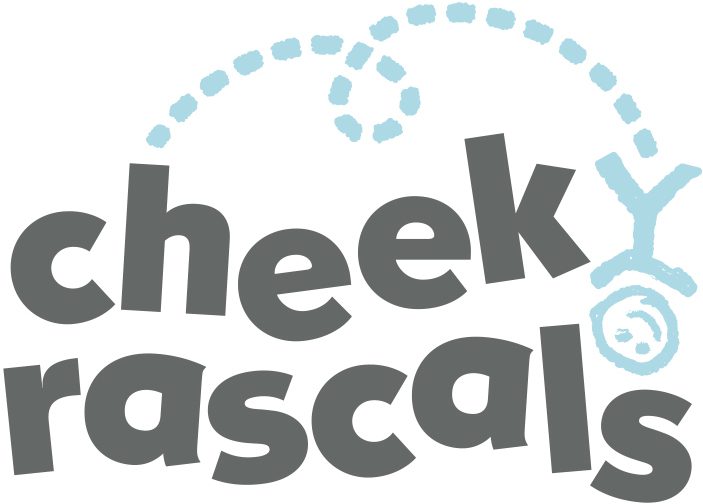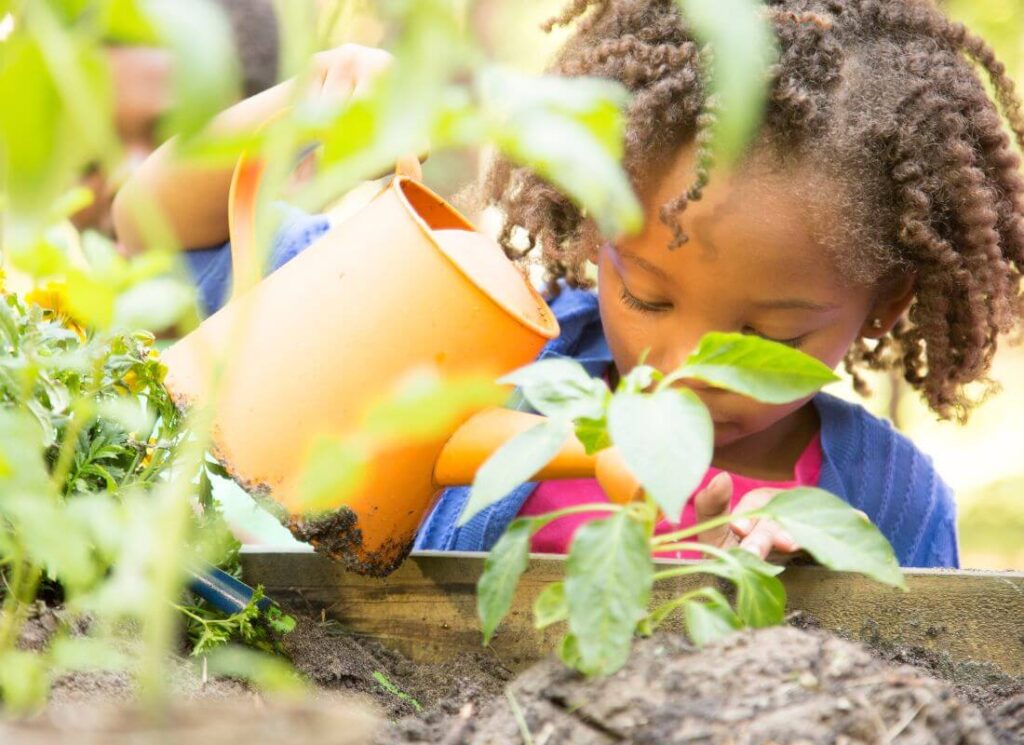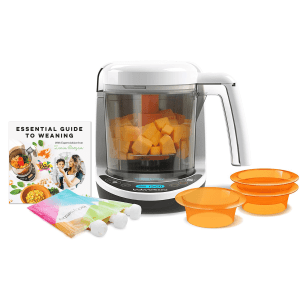Being a parent is a wonderful and rewarding journey, but it also comes with a responsibility to raise our children in a way that considers the future of the planet. But being so busy raising small children can often make this feel like an impossible task.
It is important to note that sustainability doesn’t have to be all or nothing. Sustainable parenting is just about making small changes to our everyday habits that have a positive impact on the environment.
So, in this blog we will explore 10 small and realistic changes you can make to embrace eco-friendly parenting. After all, Rome wasn’t built in a day!
10 small and realistic changes you can make to embrace eco-friendly parenting
1. Buy second-hand toys, clothes and books
Children grow up so fast, and sometimes their toys and clothes have a lot more life left in them. Instead of buying new, consider purchasing second-hand items. Not only does this reduce waste, but it also saves you money. You may find some real bargains at the local charity shops, online marketplaces, or at toy and clothes swaps with other parents.
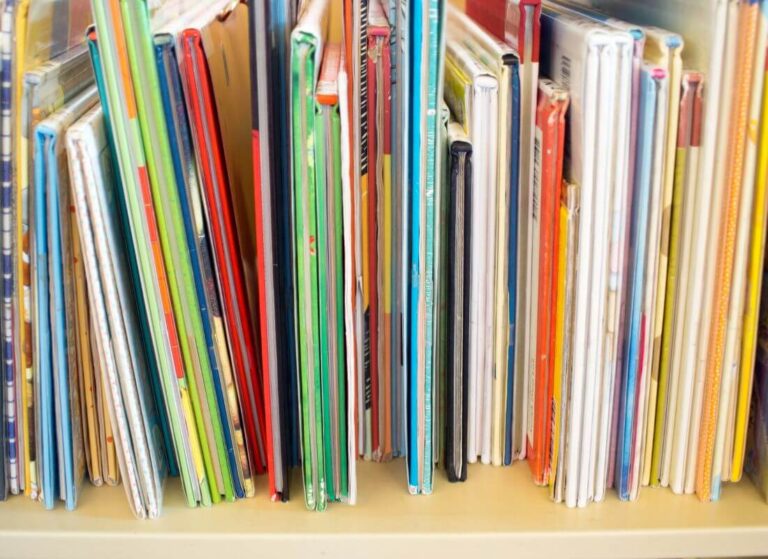
2. Buy local and cook at home
Reduce food miles and support your local businesses and farmers by buying locally sourced produce. This not only ensures fresher and more wholesome food for your family, but also reduces the carbon footprint associated with long-distance transportation. Cooking at home also allows you to control the ingredients and packaging, minimising waste in general.
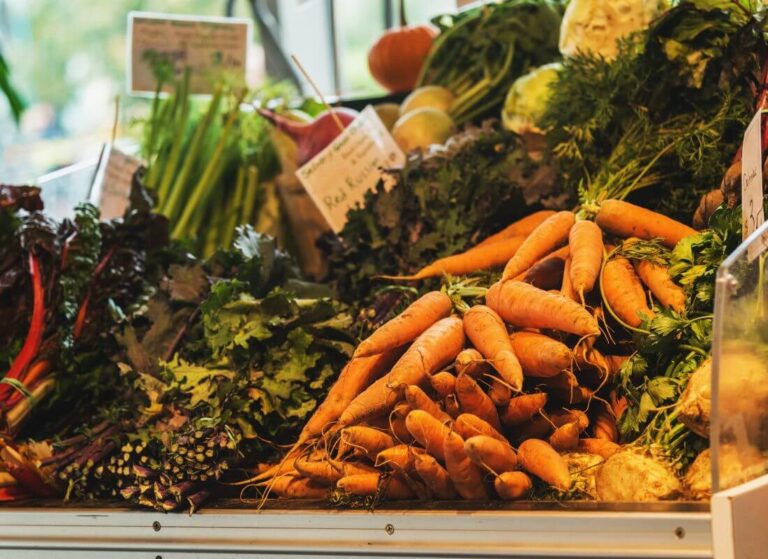
3. Wash at 30C (except nappies and soiled clothes)
A simple change you can make is adjusting the temperature setting on your washing machine. Washing at lower temperatures, such as 30 degrees-celsius not only saves energy, but also prevents colour fading and clothing shrinkage. This is ideal for a regular load of washing that does not need too much effort to clean.
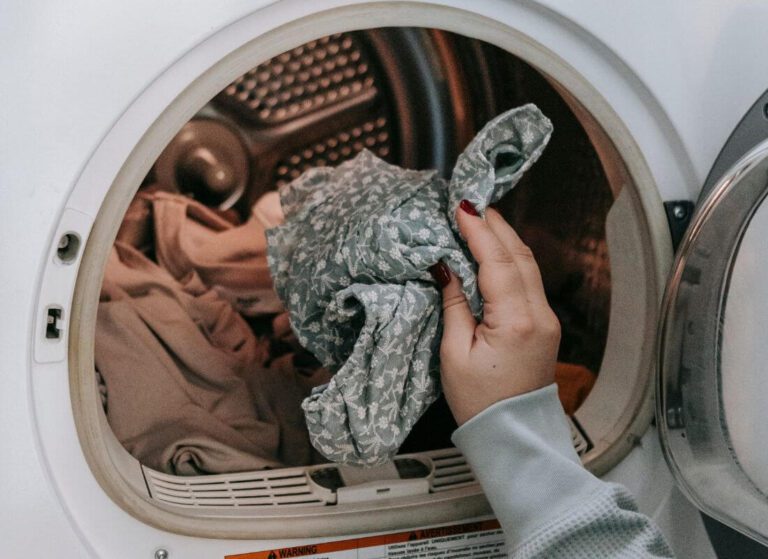
4. Give unused toys a new lease of life
As your children outgrow their toys, consider donating them to a charity or local bank. This not only helps other families in need but also promotes a circular economy of toy sharing. Look for local charities or organizations that accept gently used toys.
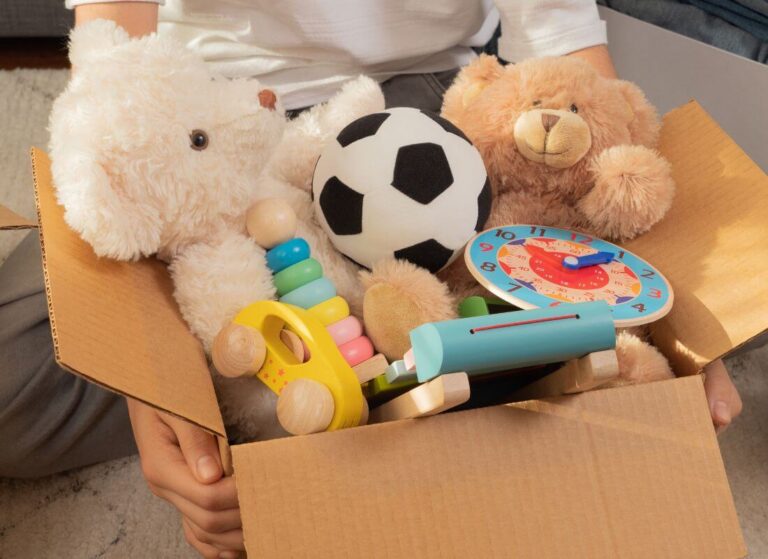
5. Try to reduce the amount of food packaging you use
If you have the time and access to fresh fruits and vegetables, consider making your own baby purées instead of buying pre-packaged ones. It’s easier than you think, and you have control over the ingredients!
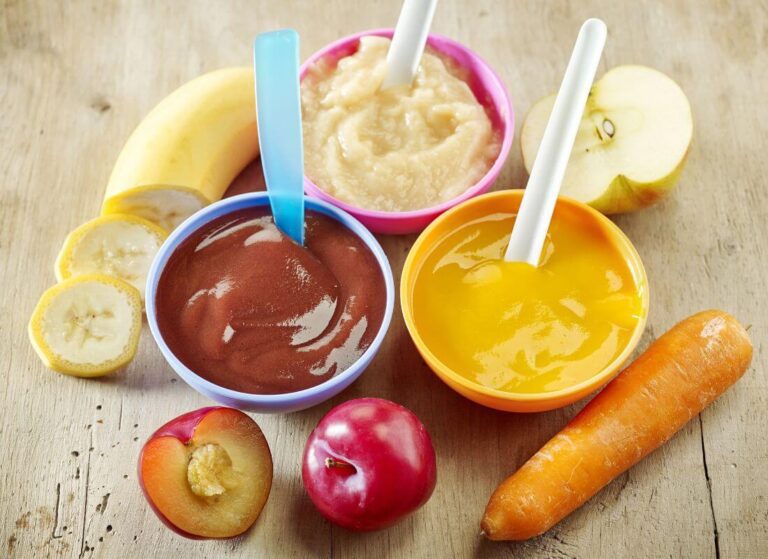
The Baby Brezza Food Maker Deluxe is an easy to use and clean food maker that automatically steams and blends homemade baby food in 1 simple step. It also includes a ‘weaning guide’ with flavourful recipes and expert advice to help guide you on your weaning journey.
Don’t forget to check out our recent Berry, Date, and Chia Seed Purée!
6. Check out reusable versions of disposable items
Disposable baby products contribute to a significant amount of waste. Consider switching to reusable alternatives like cloth nappies, washable wipes, and nursing pads. Not only will you reduce waste, but you’ll also save money in the long run.
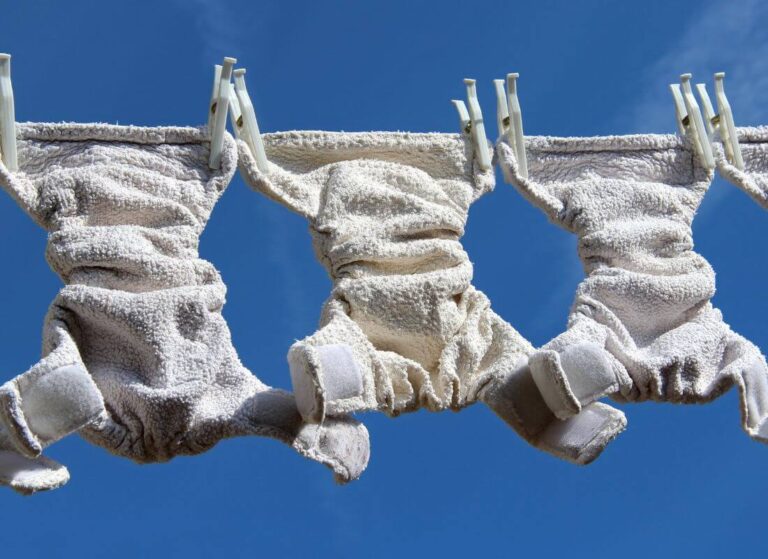
7. Teaching Your Kids About Sustainability
Start teaching your children about the importance of sustainability from an early age. Explain recycling, composting, and the significance of different bins. Make it fun and engaging so that they develop lifelong habits of being mindful towards the environment.
A lot of children’s books also focus on ecofriendly and sustainable themes, so this could be a gentle way to introduce little ones to this topic.
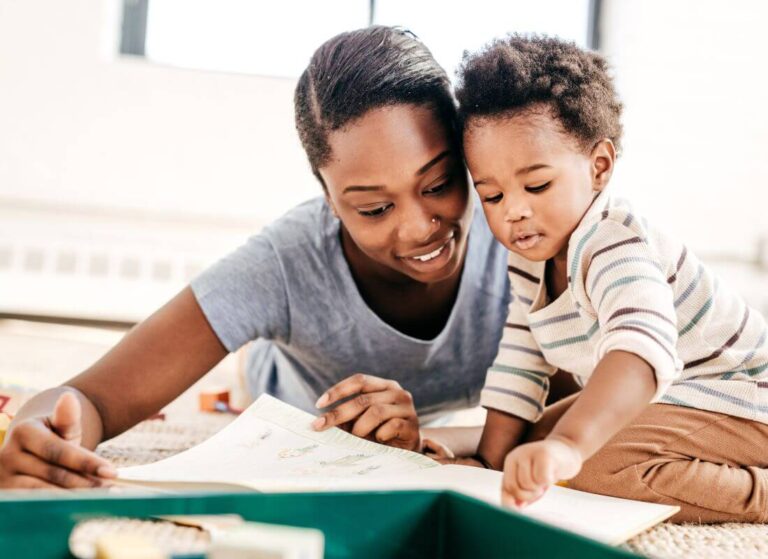
8. Ditch the car on shorter walks
Instead of always relying on your car for short trips, consider walking or cycling. You’ll get more exercise, reduce emissions, and teach your children the importance of active transportation. If you have a pushchair for little one, you can also attach a Lascal BuggyBoard to accommodate older siblings.
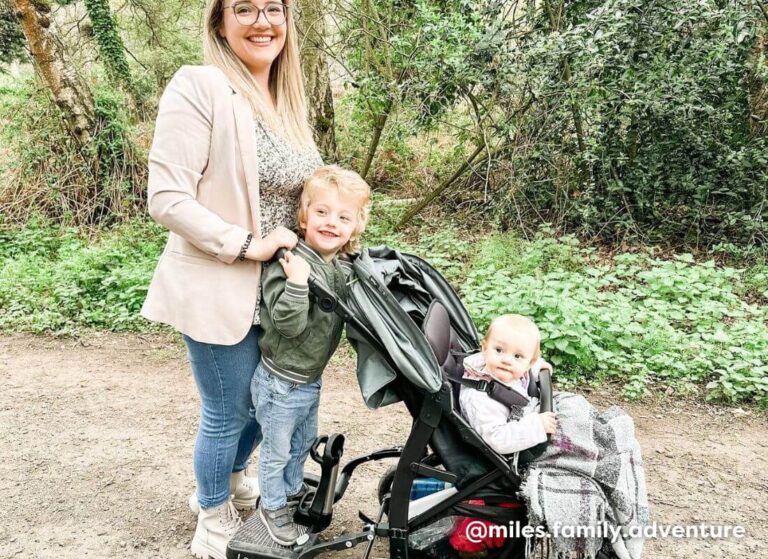
9. Borrow maternity clothes
Maternity clothes are only needed for a limited time, so instead of investing in a whole new wardrobe, consider borrowing from friends or buying second-hand. This saves money, reduces textile waste, and ensures that the clothes are put to good use even after pregnancy.
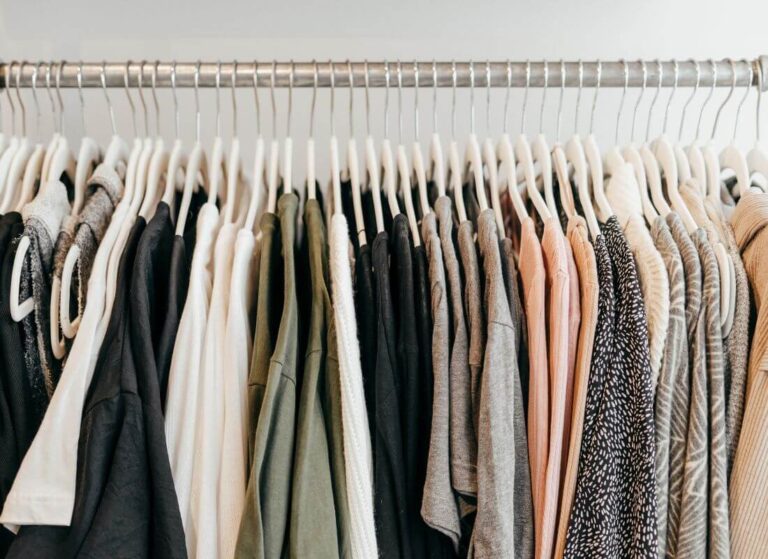
10. Grow fruit and veg at home
Gardening can be a fun activity to do with your little ones. Start a small vegetable or fruit garden at home and involve your children in the process. They will be fascinated by watching their food grow, and it will instil a sense of appreciation for nature and the food they consume.
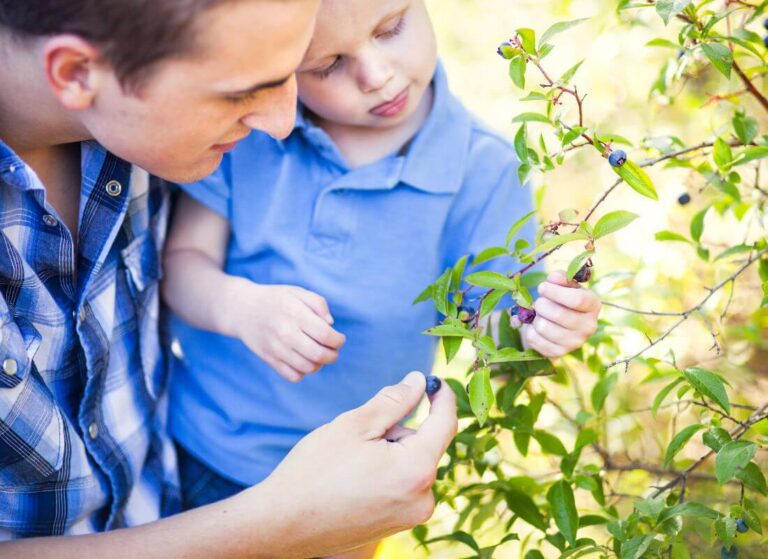
In September you can still successfully sow spinach, peas, and onions, or perhaps pick up a hearty evergreen plant such as a rosemary, sage, and thyme to start sparking interest for spring sowing season next year.
Embracing sustainable parenting is a journey that involves making conscious choices and being mindful of the impact our actions have on the planet. By implementing these small changes in daily life, we can take realistic steps towards creating a healthier and more sustainable future for our children.
